Passionate Activist
Jamal, a passionate activist proudly sporting his equality pin, boarded the bus with determination. His presence commanded attention, but not all of it was positive; Mrs. Peterson, the driver, scrutinized his pin with evident disdain, her lips pressed tightly together in disapproval.


Though Jamal had encountered similar reactions before, this day felt charged with an unusual intensity. The air seemed thick with unspoken words, and Mrs. Peterson’s cold stare only heightened the sense of unease. Jamal could sense the tension radiating around him, as if the atmosphere itself was bracing for confrontation.
Usual Path
The bus rolled along its usual path when Mrs. Peterson abruptly stopped. With a commanding presence, she declared, “No activists allowed on my bus,” her eyes narrowing at Jamal’s pin as if it were a direct challenge to her control.


“And with good reason,” she added, fixing her gaze on him. “You activists only create chaos.” Her voice was steady and resolute, leaving no room for debate as she defended her stance against what she perceived as disruption.
Maintaining Composure
Jamal's heart raced as he processed the words he had just heard. "But I have the right to travel just like everyone else," he replied, striving to maintain his composure despite the storm brewing inside him.
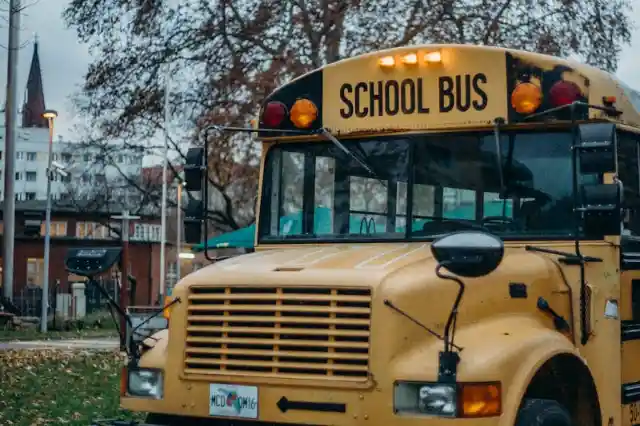

Around him, the other passengers exchanged uneasy glances, aware of the growing conflict between Jamal and Mrs. Peterson. The atmosphere thickened with tension, each person feeling the weight of the moment as Jamal stood his ground.
Surprise
Jamal stared back at her, surprise flickering in his eyes. "I haven't done anything wrong," he asserted, his voice firm despite the rising tension.
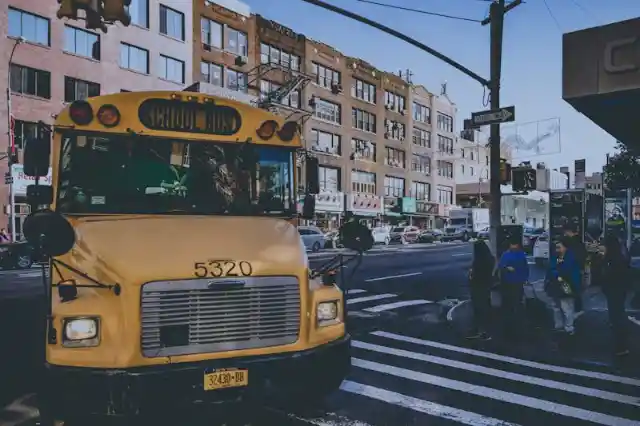

Mrs. Peterson’s expression hardened. “People like you only stir up trouble,” she shot back, her words sharp and dismissive. “We don’t want that kind of disruption here.” As the bus waited in silence, the atmosphere thickened with tension, and passengers shifted uncomfortably in their seats, glancing between the two.
Mix Of Frustration
Jamal felt a mix of frustration and humiliation as he faced Mrs. Peterson's unwavering stance. Overwhelmed by a sense of injustice that felt increasingly burdensome, he made the difficult decision to get off the bus early.
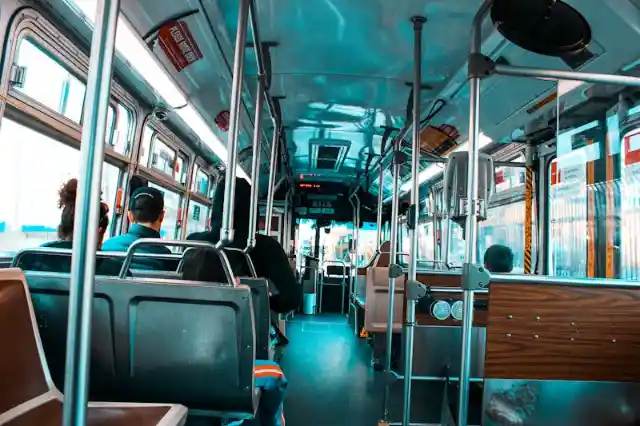

“I’m not causing trouble,” Jamal said, his voice laced with sorrow. “I just want to stand up for what’s right.” But Mrs. Peterson remained firm, her expression unyielding. “Activism doesn’t belong on my bus,” she retorted, leaving no room for discussion.
Atmosphere Shifted
The atmosphere in the bus shifted as passengers exchanged uneasy glances, acutely aware of the growing tension. Jamal’s heart sank as he searched for a friendly face, only to find disappointment staring back at him.
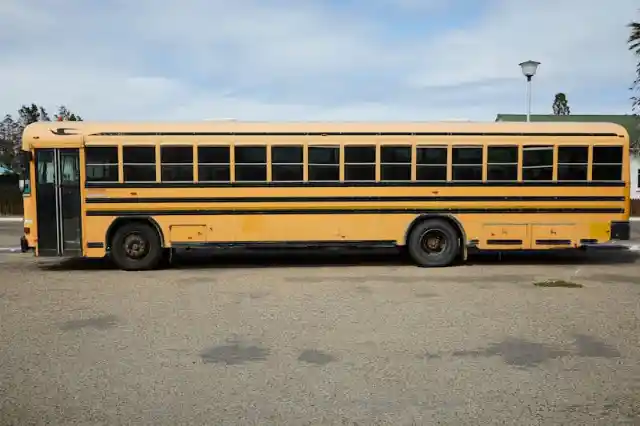

“Okay, fine,” he murmured, his voice barely audible, acceptance washing over him. As he walked down the aisle, anger simmered beneath his surface, mingling with a deep sense of loss. Stepping onto the pavement, he felt an overwhelming wave of solitude wash over him as the bus drove off, leaving him alone on the sidewalk, a painful reminder of the moment he wished to forget.
Returning Home
When Jamal returned home earlier than usual, his mother, a seasoned politician dedicated to social justice, instantly sensed that something was wrong. Her heart sank as she noticed the turmoil swirling in her son's eyes, a stark contrast to his usual demeanor.
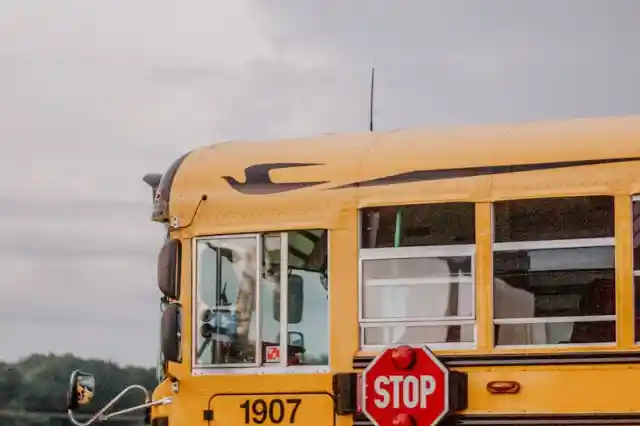

“Is everything okay?” she asked softly, momentarily putting aside her campaign papers. Jamal's slumped posture and refusal to meet her gaze spoke volumes, hinting that a significant event had unfolded.
Paused
Jamal paused, grappling with how to express the unfairness he had just faced. “I… I was thrown off the bus,” he stammered, his voice shaking with a blend of anger and disbelief.
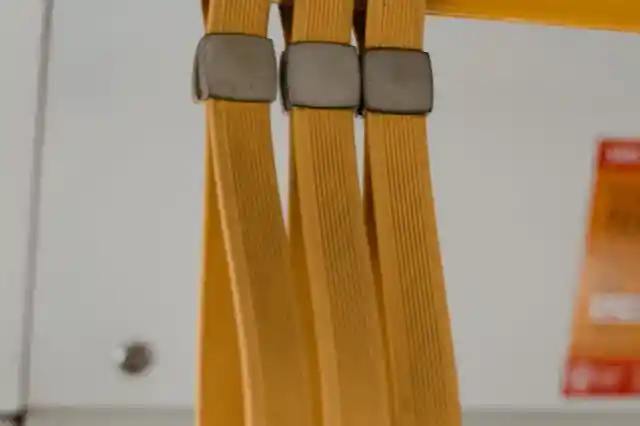

His mother’s expression tightened with worry. “Thrown off the bus? What happened?” she asked, her voice turning serious as she picked up on the weight of his predicament.
Deep Breath
Jamal took a deep breath as he shared the incident that occurred on Mrs. Peterson's bus. He explained how he had been targeted just for wearing an activist pin, recounting her harsh tone and rigid demeanor. The tension among the other passengers was palpable, and he felt a wave of helplessness wash over him when he exited the bus.


His mother listened carefully, her initial concern gradually morphing into resolve. With a comforting hand on Jamal's shoulder, she conveyed her unwavering support, ready to stand by him in the face of adversity.
I’m Sorry
"I'm sorry you had to experience that," she said gently. "Always remember, fighting for your beliefs is never misguided."


Jamal felt a wave of gratitude wash over him for his mother's unwavering support. Although the embarrassment lingered, he found solace in her words. He knew he could rely on her wisdom as he tackled the challenges of standing up for justice in a world that often felt indifferent to progress.
Make It Right
Determined to take action, she reassured Jamal, "We'll make this right. No one should face discrimination for standing up for what they believe in." Her resolve was unwavering, fueled by a sense of duty and justice.
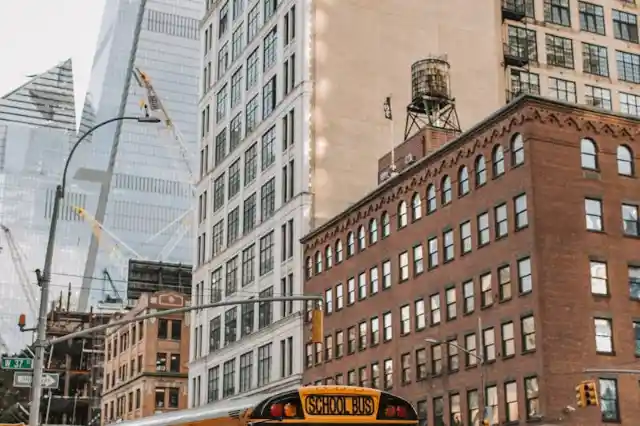
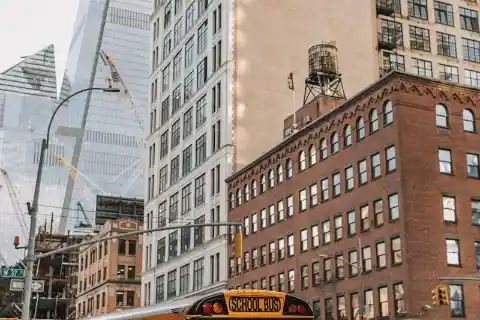
Jamal found solace in his mother's words, feeling a glimmer of hope reignite within him. Her commitment to social justice had always inspired him, but now it was personal. As they sat together in their living room, surrounded by books and campaign posters, he could see the gears turning in her mind.
Wildfire
Meanwhile, word of Jamal's expulsion from the bus spread like wildfire throughout the community. Outrage and solidarity ignited as friends, neighbors, and fellow activists rallied around him, donning their own pins in support. Jamal felt overwhelmed by the outpouring of support from those around him.


His friends organized gatherings to discuss strategies for advocacy, while neighbors offered words of encouragement and solidarity. Activists from different causes reached out, recognizing Jamal's experience as part of a larger struggle for justice and equality. "It's not just about me," Jamal told a local reporter during one of the community gatherings. "It's about ensuring that everyone has the right to express their beliefs without fear of discrimination."
Media
Local media outlets caught wind of the story, amplifying Jamal's ordeal and sparking a public debate on civil liberties, freedom of expression, and the responsibilities of public service providers like Mrs. Peterson. As the story gained traction, journalists delved deeper into the circumstances surrounding Jamal's expulsion from the bus.


They interviewed community members, legal experts, and civil rights advocates, shedding light on the broader implications of Mrs. Peterson's actions. "This isn't just about a bus ride," one editorial argued. "It's about the boundaries of free speech and the duties of public servants to uphold fairness and respect."
Criticism
Facing mounting criticism, Mrs. Peterson defended her actions, claiming Jamal's pin made her uncomfortable and disrupted the peace on her bus. Her words deepened the divide in public opinion, with some defending her stance and others condemning it as discrimination. In interviews, Mrs. Peterson maintained her position, insisting that she had acted within her rights to maintain order and safety on her bus.


Her statements drew support from those who viewed activism as disruptive or inappropriate in certain settings. However, her defense also sparked outrage among those who saw her actions as a clear violation of Jamal's rights. Advocacy groups and community leaders issued statements condemning discrimination and calling for accountability from public officials.
Undeterred
Undeterred by the backlash, Jamal found strength in the overwhelming support from his community. He spoke passionately at local meetings, urging others to stand up against intolerance and fight for equality. At community gatherings and public forums, Jamal shared his story with conviction, emphasizing the importance of solidarity in the face of adversity.


His words resonated deeply with those in attendance, many of whom had experienced their own struggles with discrimination. His impassioned speeches inspired applause and nods of agreement, reinforcing a sense of unity and purpose among attendees. People from diverse backgrounds joined forces, determined to turn Jamal's experience into a catalyst for meaningful change.
Passion
In the days following his public appearances, Jamal received messages of support from individuals across the country. Students, activists, and community leaders voiced their outrage over the injustice he had faced and pledged their support for his pursuit of justice.


"We stand with Jamal," read banners at rallies held in his honor, where attendees wore pins bearing messages of solidarity. The demonstrations drew attention from national media outlets, further amplifying Jamal's call for accountability and systemic reform. "It's not just about me," Jamal emphasized during a televised interview. "It's about creating a future where everyone can live and express themselves freely, without fear."
Petitions
Petitions calling for Mrs. Peterson's dismissal gained momentum, gathering thousands of signatures from outraged citizens who believed in justice and equality for all. Online campaigns and grassroots efforts mobilized supporters to sign petitions demanding accountability from the bus company and its employees.


Community leaders and advocacy groups rallied behind Jamal's cause, using social media platforms to amplify their message and reach a wider audience. The petitions garnered attention from local officials and policymakers, prompting discussions about the need for inclusive policies and training to prevent similar incidents in the future. Supporters continued to advocate for meaningful reforms, determined to ensure that Jamal's experience would lead to lasting change.
Pressure
Pressure mounted on the bus company to address the incident and implement policies that safeguarded the rights of passengers regardless of their beliefs or affiliations. Jamal's case became a litmus test for the company's commitment to inclusivity and fairness. Amid public outcry and mounting petitions, the bus company faced scrutiny over its handling of Jamal's expulsion.


"We expect more from our public service providers," Jamal asserted during a press conference, flanked by supporters wearing solidarity pins. "It's time for real change that ensures everyone is treated fairly and respectfully." The company responded by announcing a review of its policies and procedures, pledging to collaborate with community stakeholders to develop more inclusive practices. The announcement marked a significant step forward in the ongoing effort to reform public services and promote equality.
Thorough Investigation
The mayor, under growing public scrutiny, intervened in the matter, promising a thorough investigation into Mrs. Peterson's conduct and the policies governing public transportation services. Recognizing the broader implications of Jamal's case, the mayor convened meetings with community leaders, legal experts, and advocacy groups to discuss accountability and reform.


Residents voiced their concerns and expectations for a fair and impartial investigation, emphasizing the need for transparency and justice. The mayor's commitment to addressing discrimination resonated with residents, who applauded the initiative to hold public officials accountable. Discussions continued as stakeholders worked together to develop concrete steps toward meaningful change and ensure that Jamal's experience would lead to lasting improvements.
Work, Work, Work
Behind the scenes, Jamal's mother worked tirelessly, consulting with legal experts, community leaders, and civil rights organizations to devise a strategic plan for seeking justice for her son and holding Mrs. Peterson accountable. In meetings and conference calls, she collaborated with advocates to navigate the complexities of legal proceedings and public advocacy.


Together, they crafted a comprehensive strategy that included gathering evidence, preparing witnesses, and engaging with the media to raise awareness. Her efforts gained support from local and national organizations, which provided resources and expertise to bolster Jamal's case. As the legal battle loomed, she remained steadfast in her commitment to securing justice for her son and ensuring that systemic changes would prevent similar injustices in the future.
Witnesses
Witnesses who had been on the bus that fateful day came forward, offering testimonies that supported Jamal's version of events and shed light on Mrs. Peterson's history of biased behavior. Their accounts corroborated Jamal's experience, detailing instances where Mrs. Peterson had displayed prejudice or discrimination toward passengers based on their beliefs or affiliations.


Their courage to speak out reinforced the urgency of addressing systemic biases within public service sectors. The testimonies strengthened Jamal's case, providing critical evidence that underscored the need for thorough investigation and reform. Advocates and community leaders continued to rally behind Jamal, united in their pursuit of justice and equality for all individuals.
Evidence
Despite mounting evidence against her, Mrs. Peterson remained defiant, refusing to apologize or acknowledge any wrongdoing. Her steadfastness only fueled the community's determination to see justice served. In interviews and public statements, Mrs. Peterson maintained her innocence, insisting that she had acted within her rights and responsibilities as a bus driver.


Her defiance drew criticism from advocates and community members, who called for accountability and consequences for her actions. As public pressure intensified, calls for Mrs. Peterson's dismissal grew louder, with residents and officials alike demanding accountability from the bus company and its employees. The standoff highlighted deep-seated divisions over issues of equality and justice, prompting soul-searching conversations about the responsibilities of individuals in positions of authority.
Increasing Pressure
As tensions mounted, the community grappled with the broader implications of Jamal's experience. Conversations about systemic discrimination, privilege, and the role of individuals in promoting social change became increasingly urgent and necessary. Public forums and town hall meetings provided platforms for residents to share their perspectives and experiences related to discrimination.


Community leaders facilitated dialogues aimed at fostering understanding and unity, challenging biases, and exploring avenues for meaningful reform. The discussions sparked introspection and collective action, prompting residents to examine their own beliefs and behaviors while advocating for structural changes. Through dialogue and education, the community sought to transform Jamal's experience into a catalyst for positive societal change.
Unwavering Support
Jamal, buoyed by unwavering support, remained resolute in his belief that his fight was not just about one incident but about challenging entrenched prejudices and advocating for a more inclusive society. Amid ongoing debates and legal proceedings, Jamal continued to speak out against discrimination and injustice, becoming a voice for marginalized communities.


His unwavering determination inspired others to join the movement for equality and civil rights, amplifying calls for systemic reforms. His leadership and courage earned him national recognition as a symbol of resilience and activism. Advocates and organizations across the country rallied behind Jamal, recognizing his commitment to justice as a beacon of hope for social progress.
Determination
The legal battle loomed large, but Jamal's determination continued to inspire those around him. His unwavering commitment to justice became a rallying cry for others who had faced similar injustices.


Supporters mobilized to attend court hearings and rallies, where Jamal's case symbolized a broader struggle for civil rights and equality. National organizations offered legal assistance and resources, amplifying calls for systemic reforms. "We must hold institutions accountable," Jamal declared during a press conference, flanked by advocates wearing solidarity pins. "This is about ensuring fairness and dignity for all."
Rallies
Supporters organized rallies, marches, and protests in solidarity with Jamal, demanding accountability and reform in public transportation and beyond. Community gatherings united diverse voices, amplifying Jamal's message and prompting national media coverage. The protests underscored a collective commitment to combating discrimination and promoting inclusive practices.


Activists and allies mobilized online campaigns, urging policymakers and corporations to adopt policies that safeguarded the rights of all individuals. "We will not be silent in the face of injustice," Jamal affirmed at a rally, his voice echoing through the crowd. "Together, we can create a future where everyone is treated with respect."
Legalities
Legal proceedings began, drawing national attention to Jamal's case and highlighting broader civil rights issues in public spaces. Advocates monitored the courtroom, presenting evidence and arguments for accountability and systemic reforms. The trial sparked public discourse on discrimination, emphasizing the responsibilities of public service providers and the pursuit of justice.


Community leaders and legal experts provided commentary, urging a fair and transparent judicial process. "We seek justice, not just for Jamal, but for all marginalized communities," one advocate stated during a televised panel discussion, urging systemic changes to prevent future discrimination incidents.
Community
Public forums and social media buzzed with debates about discrimination, civil liberties, and the responsibilities of individuals in positions of authority. Community dialogues explored avenues for promoting inclusivity and challenging biases. Residents shared personal experiences and perspectives, advocating for policies that uphold equality and respect.


Advocacy groups mobilized online campaigns, calling for reforms and accountability from public officials and service providers. "We need policies that protect everyone's rights," Jamal emphasized during a community forum, urging systemic changes to prevent discrimination. "Let's work together to build a fairer and more inclusive society."
Navigate
Behind the scenes, Jamal's mother continued to navigate the complexities of advocacy and legal maneuvering, leveraging her influence to ensure that her son's case received the attention and scrutiny it deserved. Consulting with legal experts and community leaders, she strategized for justice and systemic reforms.


Her efforts garnered support from national organizations, which provided resources and expertise to strengthen Jamal's case. "This is about holding institutions accountable," Jamal's mother emphasized during interviews, her voice steady with determination. "We will not rest until justice is served."
Scrutiny
Media scrutiny intensified, exposing flaws in the bus company's diversity policies and prompting widespread calls for reforms to protect the rights of all passengers, regardless of their beliefs or affiliations. Journalists investigated the systemic issues highlighted by Jamal's experience, conducting interviews with experts and stakeholders to assess the effectiveness of current policies.
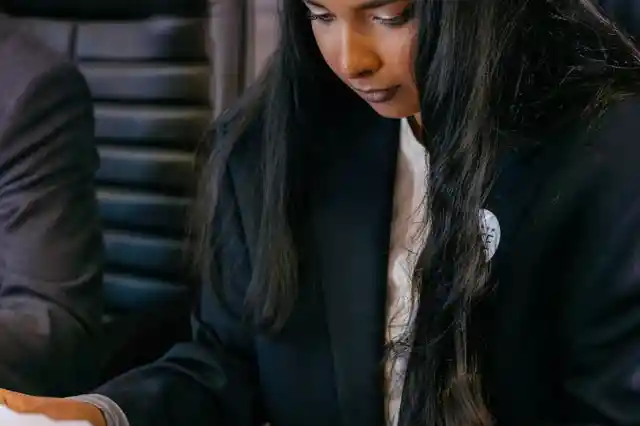

Editorial pieces and investigative reports scrutinized the company's response to discrimination allegations, prompting public scrutiny and demands for accountability. "We need policies that reflect our commitment to equality," Jamal asserted during a televised interview, calling for comprehensive reforms to prevent future incidents of discrimination. "It's time for real change."
Incidents
The trial finally commenced, drawing spectators from across the country who viewed Jamal's case as a test of the justice system's ability to uphold principles of fairness and equality. Emotions ran high as Jamal took the stand to testify about the emotional and psychological impact of Mrs. Peterson's actions on his life and sense of belonging in his own community.
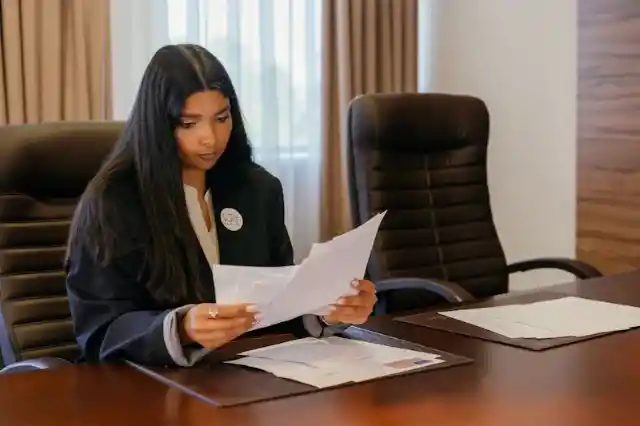

Legal teams presented arguments, emphasizing the importance of justice and accountability. "This trial is about more than one incident," Jamal stated outside the courthouse, surrounded by supporters wearing solidarity pins. "It's about ensuring that everyone is treated with dignity and respect."
Damning Picture
Evidence presented during the trial painted a damning picture of Mrs. Peterson's conduct and attitudes, revealing a pattern of discriminatory behavior that went unchecked for far too long. Witness testimonies detailed instances of bias and prejudice on the bus, reinforcing Jamal's claims and highlighting systemic issues within the transportation sector.


Legal experts and community leaders provided commentary, urging reforms to protect passengers' rights and prevent future discrimination. "We cannot tolerate discrimination in any form," Jamal asserted during a press conference, calling for accountability and systemic changes. "Let's work together to build a more just society."
Trial
As the trial progressed, public support for Jamal's cause continued to grow, with thousands of people rallying behind him both in person and online, united in their demand for accountability and justice. Supporters organized rallies and social media campaigns, amplifying Jamal's message and calling for reforms in public transportation and beyond.


Community leaders and advocates shared personal stories, illustrating the widespread impact of discrimination. "We stand with Jamal," read banners at demonstrations held in his honor, where attendees wore solidarity pins. The public outcry underscored a collective commitment to combating injustice and promoting equality for all.
Verdict
Finally, the long-awaited verdict day arrived, marking a pivotal moment in Jamal's fight for justice and the broader struggle for equality and civil rights.The courtroom held its breath as the judge delivered the verdict, ruling decisively in favor of Jamal and condemning Mrs. Peterson's actions as discriminatory and unjust.


Supporters erupted in cheers, celebrating a landmark victory for fairness and accountability. "Today's verdict sends a powerful message," Jamal declared outside the courthouse, surrounded by jubilant supporters. "It's a victory for everyone who believes in justice and equality."
Dismissal
Mrs. Peterson's dismissal from her position as a bus driver sent shockwaves through the community, prompting reflection and discussion about the consequences of intolerance and prejudice. Residents and community leaders voiced their opinions on the verdict, emphasizing the importance of holding public officials accountable for their actions.


Advocacy groups applauded the decision, calling it a step toward building a more inclusive and respectful society. "We must continue to challenge discrimination wherever it exists," Jamal asserted during a press conference, reflecting on the impact of the trial. "This is just the beginning of our journey toward equality."
Triumph
Jamal's smile returned, a symbol of triumph and resilience in the face of adversity. His victory was not just a personal one but a collective achievement for everyone who had supported him along the way. Celebrations erupted among Jamal's supporters, who saw his triumph as a victory for fairness, equality, and the power of grassroots activism to effect meaningful change.


The community came together to honor Jamal's courage and determination, pledging to continue the fight for justice. "We've shown that when we stand together, we can overcome any obstacle," Jamal declared at a victory rally, surrounded by cheering supporters. "Let's keep pushing for progress and equality."
Lessons
Lessons were learned from Jamal's experience, highlighting the importance of standing up against discrimination and advocating for justice, even in the face of resistance and adversity. Community discussions focused on the need for inclusive policies and cultural competency training in public services.


Residents shared their commitment to promoting respect and understanding, challenging biases, and fostering a welcoming environment for all. "We must work together to create a community where everyone feels valued and respected," Jamal emphasized during a town hall meeting, reflecting on the impact of his case. "Let's continue to build a future based on equality and fairness."
Inspiration
Inspired by Jamal's courage and determination, activism flourished in the aftermath of his case, with renewed energy and commitment to challenging systemic injustices and promoting inclusivity. Supporters organized workshops and educational events focused on civil rights and social justice.


Grassroots initiatives emerged to advocate for policy changes and community empowerment, reflecting Jamal's legacy of resilience and advocacy. "This is our moment to make a difference," Jamal declared at a community event, encouraging others to join the movement for equality. "Together, we can build a society where everyone has the opportunity to thrive."
Equality
Equality became a rallying cry across the town and beyond, uniting people from diverse backgrounds in a shared commitment to creating a more just and equitable society for all. Residents and community leaders collaborated on initiatives to promote diversity and inclusion in local institutions.


Advocacy campaigns and cultural events celebrated the richness of diversity, fostering dialogue and understanding among neighbors. "We are stronger when we embrace our differences," Jamal stated during a diversity forum, emphasizing the importance of unity in the pursuit of equality. "Let's continue working together toward a future where everyone can live with dignity and respect."
Healing
Gradually, the community began to heal, bridging divides caused by the incident and working together to rebuild trust and mutual respect among its members. Residents engaged in restorative justice practices and community dialogues to address lingering tensions.


Educational programs and cultural exchanges promoted understanding and empathy, fostering a renewed sense of unity and solidarity. "We've come a long way, but there's still work to be done," Jamal reflected during a reconciliation event, acknowledging the community's progress. "Let's continue building bridges and supporting each other."
Started With A Pin
Jamal's pin, once a source of conflict and controversy, now symbolized hope and perseverance, reminding everyone of the power of individuals to drive positive change in their communities. Residents proudly wore solidarity pins, signaling their commitment to equality and justice.


The pin became a symbol of unity and resilience, representing the community's collective journey toward healing and reconciliation. "We've turned a symbol of division into a symbol of unity," Jamal remarked during a community celebration, surrounded by supporters wearing solidarity pins. "Together, we've shown that change is possible."
New Chapter
As a new chapter began, Jamal looked ahead with optimism and determination, knowing that his fight had not only brought justice for himself but had also sparked a broader conversation about equality, rights, and the responsibilities of individuals and institutions in upholding them.
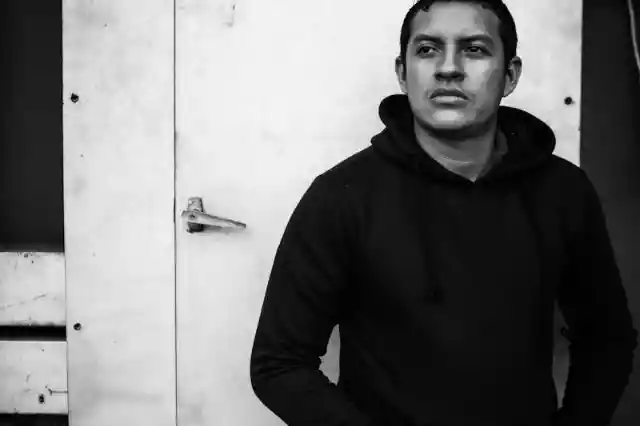
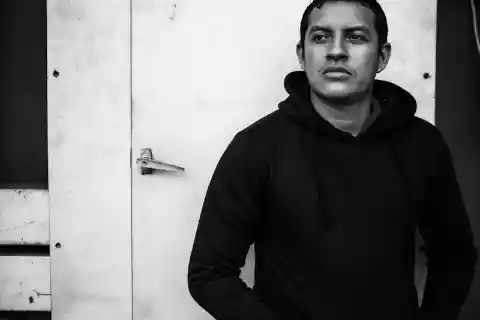
Residents and leaders continued to advocate for inclusive policies and practices, ensuring that Jamal's experience would lead to lasting reforms. The community remained united in its commitment to creating a future where everyone could live with dignity, respect, and equality. "This is just the beginning," Jamal declared during a community event, reflecting on the journey. "Let's keep pushing forward, together."
Turning Point
Jamal's trial marked a turning point in his quest for justice and equality. One that showed remarkable courage and morals. The courtroom verdict affirmed his experience as discriminatory, sparking national dialogue on civil rights and public service responsibilities.
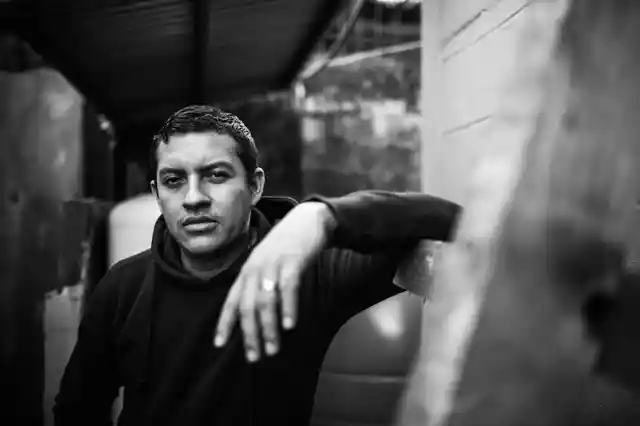
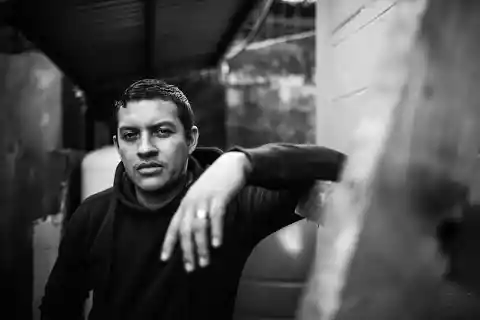
Supporters rallied behind Jamal, demanding accountability and systemic reforms. The trial's outcome underscored the community's resolve to uphold fairness and dignity, paving the way for transformative change in policies and attitudes.
Reconciliation and Reflection
Jamal's journey culminated in reconciliation and reflection within the community. Through dialogue and solidarity, wounds began to heal, fostering understanding and unity among residents.


Cultural exchanges and restorative justice efforts bridged divides, reaffirming a commitment to mutual respect and inclusivity. The community embraced Jamal's victory as a shared triumph, paving the way for a more equitable future.
Legacy of Change
Jamal's legacy resonates as a beacon of change, inspiring ongoing advocacy for justice and equality. His courage sparked reforms in public service policies and attitudes toward activism.
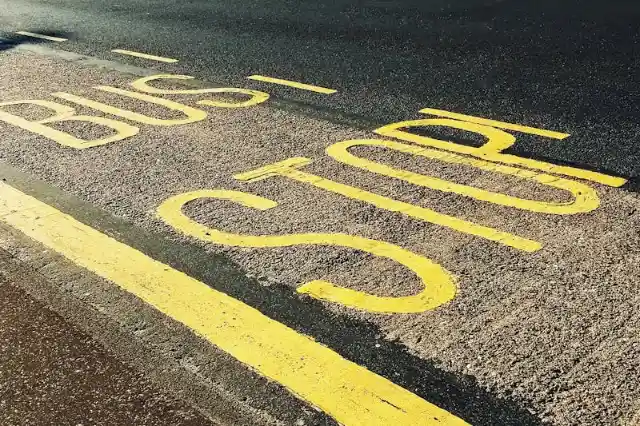
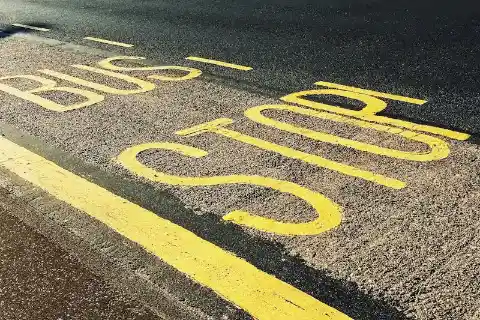
The solidarity pins became a symbol of unity and resilience, reminding us of the power of collective action. As Jamal continues his journey, the community stands stronger, united by a commitment to uphold rights and dignity for all.